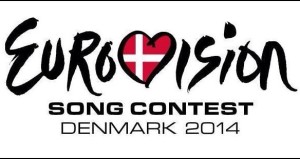
When DR published the documents regarding the 2014 Eurovision Song Contest we also got a look into which exact requirements a host city of such an event are met with. These are technical requirements to the stage, but also things like hotel specifications, size of Eurovision Village and even the number of bars at Euroclub.
When five Danish cities expressed an interest in hosting the 2014 Eurovision Song Contest they were asked to present their plans to host broadcaster DR including the following:
- Why should you host ESC 2014? Motivation and experince to take on such a task.
- Venue which lives up to the requirements from EBU and is available for six weeks.
- Hotel specifications on number and type of hotelroom available in the period
- Logistics in and around venue and city
- Collaboration around the many side events and activities which hosting ESC requires
- Cost of hostship
Techinical specifications were listed such as the size of DR’s production trailers and distance from TVC (TV Compound) to stage, but also lots of other things easier to understand for the non technical readers.
Artists, commentators and sponsors:
To service the participating artists a minimum of 30 wardrobes with space for ten people, seperate bathing facilities for men and women, 20 make-up tables and 15 hairdresser places were required, plus an overnight laundry with dryclean and a tailor.
For the commentators mimimum 50 boxes were needed, just as a lounge for 100 commentators had to be nearby. The boxes had to have space for two people working, aircondition, electricity, internet and a good TV signal.
Without sponsors there wouldn’t be any Eurovision Song Contest so of course they have to be taken good care of. Besides sponsor seats in the arena a seperate sponsor hospitality area for 700 people including catering had to be available close to where the sponsors would be seated in the arena itself.
After their rehearsals delegations go to see a video recording of it in the socalled viewing room, a recording they can use to request changes. It is mentioned that this needs to be of a size so that it fits 20 people.
It was also specified that greenroom should be near the stage and able to host 250 people with space for TV light and aircondition as well.
Presscenter:
In order to gain good exposure of the contest a presscenter with good working facilities are needed. This is mentioned to be in the size between 6.000 and 10.000 squaremetres with phone and broadband connection for 1500 people, with minimum 900 at once. The press conference area should have space for 500 seating journalists plus a podium for TV cameras and a photoshoot area and three sound boxes.
There should also be individual interview rooms, up to eight eqiped radiostudios and a fan meet & greet room. The presscentre should also include a helpdesk with 3.000 pigeon holes, fax oppertunities and minimum 100 boxes for storage of photo equipment and a fan desk.
A first-aid room with medical staff has to be available as well just as a smaller press office with working spaces for EBU website team.
Food, drinks and snacks:
A Danish expression says that "without food and drinks no hero can work", and indeed for the long hours of working at a Eurovision Song Contest food, drinks and snacks have to be available. A total of three canteens operating on a daily basis are required: One for the journalists, one for the working delegations and one for the TV crew.
In the final contract between HostCity Copenhagen (HCC) and DR it is further mentioned that coffee, tea, water and snacks should be provided free of charge in the presscenter.
Eurovision Village and Euroclub:
A Eurovision Song Contest is more than just a TV show for the involved parts. It is also a party for the local population and the foreign visitors. Eurovision Village should be between 600 and 1.000 squaremetres and include sponsor exposure and performers for the visiting audience to enjoy.
For nighttime enjoyment Euroclub is open for accreditated fans, journalists, delegations etc. and should be open to at least 03.00, be minimum 1.000 squaremetres and have six bars and two stages.
Accomodation:
With a total of 10.000 accreditated people for a Eurovision Song Contest naturally good accomodation facilities are needed in the host city. DR writes in their material sent out to the five interested cities that it requires a minimum of 10.000 hotelrooms divided with 40% in the lower category (usually 3 star), 40% medium (4 star) and 20% high priced (5 star).
DR also writes that the hotelrooms must be located in an acceptable distance from the centre of the city and/or the venue. It was this which made Aalborg pull out concluding that they didn’t have the required hotel capacity. They took it to be a short walking distance from the city centre, and therefore hotels 10 drive away would be out, and even hostels in the centre couldn’t be used as it specified hotels. Herning and Horsens which did bid strechted it in the other direction with their Eurovision ideas relying on most of the hotels being nearly an hour drive away.
From the EBU report DR got their numbers from we can read that EBU says that the folowing is needed:
Delegations: 1.000 hotelrooms spread over 3, 4 and 5 stars
EBU crew, partners and guests: 130 – 190 hotelrooms spread over 3,4 and 5 stars
Sponsors: 330 hotelrooms spread over 4 and 5 stars
Journalists: 1.000 rooms spread over 3,4 and 5 stars, but can also be hostels, camping cottages and apartments.
Fans: 500 rooms suggested spread over 3 and 4 stars, and can also be hostels, camping cottages and apartments. It is clearly mentioned that this number is suggested and not required as it never will be the host city’s task to provide hotel capacity for fans.
To get to their 3.000 hotelrooms DR took it to be all hotelrooms, including the fan ones. If a city like Aalborg had read the specification from EBU instead and questioned their understanding of "acceptable distance from the city centre, the city would be on the safe side. Furthermore then they have a large harbour in the city centre where a hotelship easily could be placed. Many of these might not deliver the top star hotel experience, but would fine be able to serve as accomodation for journalists and fans. If Herning’s bid had been offering temporary accomodation as seen for student housing and during the Olympics, rather than relying on a city 80 kilometres away they would have stood with a much stronger bid as well.
In the final contract between DR and the host city it was further mentioned: "The host city needs to make sure that the hotels deliver at normal prices and that they don’t put the prices up due to Eurovision Song Contest". Copenhagen failed to live up to this part of the contract, just like every other previous host city has failed as well, and Vienna will as well as their hotelrooms have already seen a big increase in prices for the two Eurovision weeks next year.
You might also like to read:
- Eurovision 2014: Problems with carrying pillars known BEFORE Copenhagen was chosen
- This is the story of the massive deficit of the 2014 Eurovision Song Contest




















